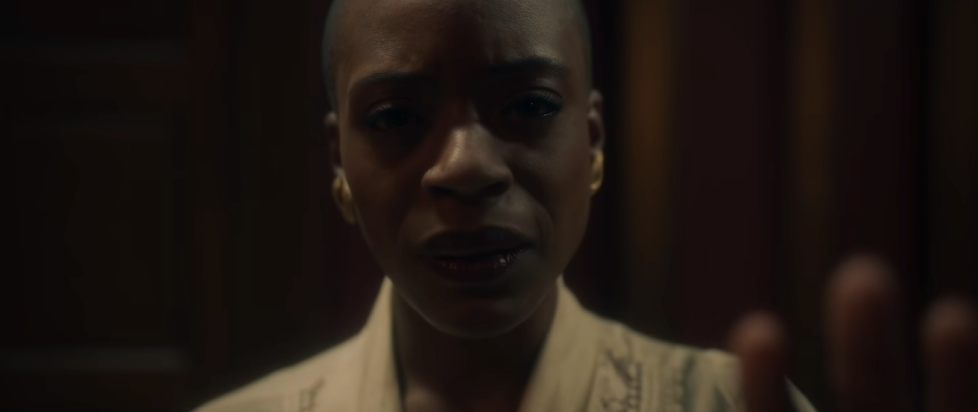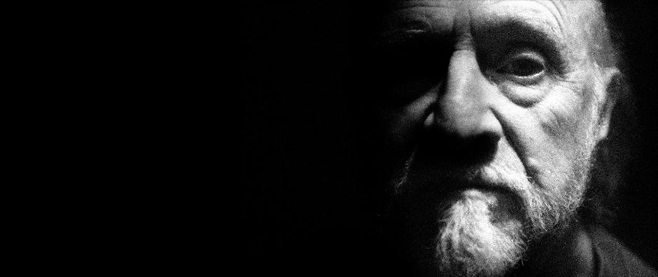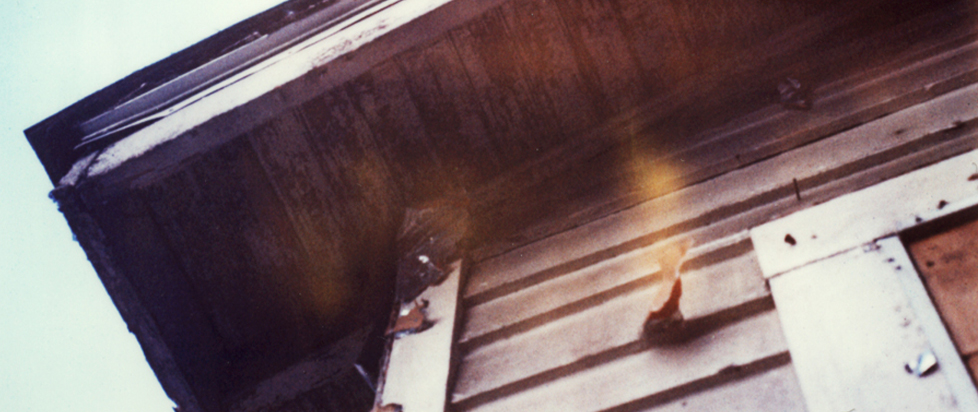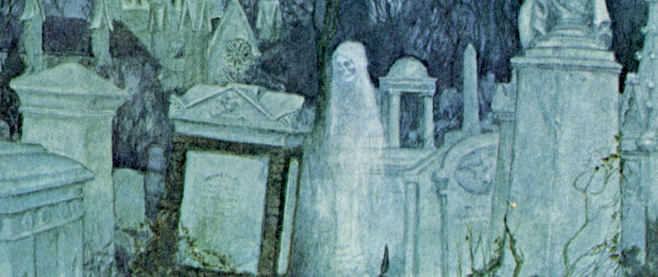
A Plague of Denial: The Haunting of One’s Mind
“I had a bad dream. I hurt you and it made you feel sad,” says little Miles after waking from his slumber.
“Oh, you can never make me sad, poppet,” the housekeeper tells her charge, and unlike the other residents of Bly Manor, she truly believes it.
Hannah Grose (played by T’Nia Miller) has sought and found refuge at Bly Manor. For her, it is a place of contentment. She doesn’t sense the stale anguish circulating in the air, nor does she hear the echoed sobs in the nighttime. But just because one is blind to it, doesn’t mean sorrow isn’t lurking just around the corner. Sorrow hides in the shadows, voicelessly wandering the halls. Sorrow clings to the children, begging for a second chance at life. Sorrow makes nightly treks from the lake to the master room and back again, searching for a long-forgotten home, and taking along its next unsuspecting victim.
When Mike Flanagan announced he would be adapting Henry James’ 1898 novella A Turn of the Screw, I was more than eager to see how he’d interpret it. To say the book is one of my favorite works of horror would be downplaying things. I am obsessed with the open-endedness of the psychological warfare the protagonist goes through in the novella. How would this version live up to all the others?
I can say without a doubt that I have found a new favorite adaptation. Not only does Flanagan delicately deliver an updated interpretation of the ending, but he is also able to flesh out the supporting characters by using some of James’ other works as inspiration for their stories. The setup is quite similar: An au pair is hired by an uncle to care for his niece and nephew, and as she spends more time at the estate, she comes to believe that not everything is as it seems. Across the nine episodes, we become familiar with the adults and the reasons they have decided to shut the world out and live a remote life. But there was one person I couldn’t take my eyes off – the housekeeper, Hannah. There was something eerily familiar about her story that was much akin to looking in a mirror.
We first meet Hannah through Dani’s eyes, found in the garden looking absentmindedly down a well. Hannah can’t recall what she was doing or why, and quickly moves on. She’s been losing days lately, but with her head cleared we get to know who she is and her place in the house. Hannah is the estate’s housekeeper, a job she enjoys, except for the days when muddy tracks are left on the marbled floors. She can be stern, but never brutal or unkind, and is fiercely protective of her wards and the place she calls home. She starts her days at the altar on the estate grounds, lighting candles for those she has lost and ends her days lightly flirting with the chef, Owen, her will-they-or-won’t-they-trope companion. Everything is as it should be, until events begin to collide and expand. Through little nuggets thrown into the first four episodes, it becomes quite clear that Hannah is one of the estate’s many trapped ghosts. Only, trapped isn’t quite right.

Episode 5, “The Altar of the Dead”, peeks into where Hannah has been going when no one can find her. This episode is sleekly set up to establish the difference between Hannah and the other lost souls of Bly. The residents have set up a vigil for Chef Owen who has just lost his mom, the only thing keeping him at the estate. He has his sights on Paris and wants Hannah to come with him. “You can’t count on the past,” he laments. But the past is all she has, as she is repeatedly transported back to the day they first met where Dream Owen tries to convey a simple message to her. “Something is wrong with Miles!”
We relive Hannah’s past with her as she is first offered a permanent residence at Bly after her husband commits infidelity and runs away. The heartbreak of a failed marriage and being fodder for village gossip led her to become a recluse, virtually never leaving Bly again. After picking up the pieces of her shattered existence, she vowed never to allow herself to be hurt again, and sets to find comfort in the mundane, a sentiment that struck too close to home. Hannah is so content in the claustrophobic world she has built for herself that her mind outright refuses to acknowledge her death. So, it’s only fitting that Dream Owen, the Owen her conscious created to signal to herself something is amiss, takes center stage. From their very first meeting, cracks begin to show in her armor whenever he is around. Maybe she gave up on the outside world too soon?
I felt so deeply connected to this character over all others because she reminded me of myself and how far I’ve come. In my younger years, I battled with undiagnosed OCD and slight agoraphobia. My habits centered around contamination, so I began to limit my time outdoors in case of exposure. Things took a turn for the worst when I could barely hug my loved ones without panic clawing its way through my chest. I was so content to bury my head in the sand, even as the habits snowballed and outgrew normal containment.
There were countless signals that something was wrong with my wiring, but I gleefully shrugged them away. It wasn’t until a commercial (of all things) snapped me back into reality. Like Hannah, I was presented with an opportunity to travel, to get away like I always dreamed, only for the full weight of my illness to come crashing down. “I can’t go,” I quietly wept as I acknowledged that I needed help. Being kept prisoner in a doom of your own mind’s creation is not something I’d wish upon my most vile of enemies.
By the end of episode 5, I was a bawling mess. I wept as Hannah gathered the courage to say yes to Owen’s drunken offer to run away to Paris together, to only find conversation as the conversation continued without mention of her. I wept for the lives they could have led. I wept for little Miles, who wasn’t dreaming – he was possessed by a ghost that ultimately pushes Hannah into the very well she was peering down into. I wept for all the chances I denied myself in the past, vowing to live my life to the fullest now that I’ve gotten proper help.
Most of all, I wept for the ghost sorrow couldn’t touch, whose soul yearned to leave, but whose mind couldn’t fathom living anywhere else.
———
Created in a lab with the essential ingredients of sugar, sass, and all things spooky, Brea is a film geek with a soft spot for 1940s noir. Her life’s goal is to move to New Zealand and live like a hobbit.





